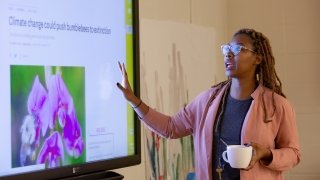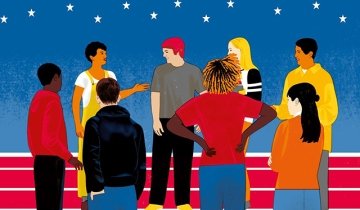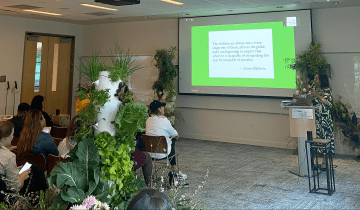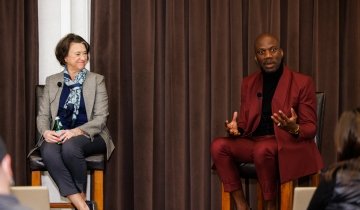Teachers—and the public in general—often don’t know where to start when it comes to educating themselves about climate change.
Research and Insight
The Intergovernmental Panel on Climate Change is the United Nations body tasked with gathering the data on climate change. Their latest report “represents the state-of-the-art scientific knowledge on climate change,” says Gale Sinatra, the Stephen H. Crocker Professor of Education at USC Rossier.
Read the report.
Carmen G. Gonzalez, Professor of Law at Seattle University School of Law, delivered the 2019 DeWitt Higgs Memorial Lecture at the University of California, San Diego, speaking on how climate change is no longer a scientific issue, but one of social justice.
"Climate change is one of the most pressing social justice issues of our time, primarily caused by the greenhouse gas emissions of the most affluent populations. Its consequences are being experienced most acutely by those who contributed least to the problem and have the fewest resources to protect themselves from harm, including the small island states, the least-develops countries, indigenous peoples and the poor."
More:
Students demand action on climate change. Can schools keep up?
Education systems aren’t prepared for one of democracy’s biggest threats.
What the COVID-19 response tells us about climate change
How do we combat rampant misinformation about science?
Science denial: Why it happens and five things you can do about it
Science denial is not new. But it is more important than ever to understand why some people deny, doubt or resist scientific explanations—and what can be done to overcome these barriers to accepting science.
Teaching Resources
A growing number of resources show how climate change is interdisciplinary.
American Educator, Winter 2019–20 is a climate-focused edition of the American Federation of Teachers’ magazine with lessons on climate change for English language arts, social studies and science teachers alike.
The NAACP has been on the front lines of the climate justice movement and has amassed scores of teaching resources connecting climate change with equity.
See the toolkit.
Teaching Tolerance provides free resources to educators—teachers, administrators, counselors and other practitioners—who work with children from kindergarten through high school.
Climate Justice at USC
Arts become a tool for climate action in the hands of USC students
The first round of 12 Trojan grant winners will pursue storytelling projects on sustainability and environmental justice through the Arts and Climate Collective.
To create a better California, these landscape architects design inclusive public spaces for all
The Landscape Justice Initiative unites USC students and faculty with community organizations to tackle big social and environmental challenges in Los Angeles and beyond.
More resources:




